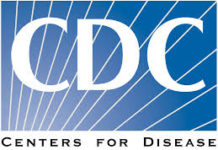Study Finds Racial Differences in Psychiatric Diagnosis and Treatment
Black patients are almost twice as likely as their white counterparts to be diagnosed with schizophrenia while whites are significantly more likely to receive a diagnosis of anxiety or depression, according to a recent study published in the journal Psychiatric Services. The researchers also found that the likelihood of receiving psychotherapy for any diagnosis (34%), regardless of race or ethnicity, was much lower than the likelihood of receiving a psychotropic medication (73%).
Who Will Guard the Guardians of Psychiatry?
The assertion that the so-called antidepressants are being over-prescribed implies that there is a correct and appropriate level of prescribing and that depression is a chronic illness (just like diabetes). It has been an integral part of psychiatry's message that although depression might have been triggered by an external event, it is essentially an illness residing within the person's neurochemistry. The issue is not whether people should or shouldn't take pills. The issue is psychiatry pushing these dangerous serotonin-disruptive chemicals on people, under the pretense that they have an illness.
“Is Depression an Illness? Or Part of the Human Condition?”
Psychotherapist Chantal Marie Gagnon voices her frustration with social media posts and stigma reduction ads that perpetuate the belief that all mental health issues...
Antidepressants Not a ‘One Size Fits All’ Solution, Researchers Find
The largest ever study of the thoughts and reactions of antidepressant users reveals that many people have vastly different understandings and experiences of the...
A Worldwide Epidemic – The Misuse of Anti-Depressant Medications
Not all people who have letters after their names are actually "gods" or even people who have any special powers to know things about us more than we can learn about ourselves, about our own bodies, and our own minds. Blindly following what someone says we need to be doing for our own health (mental or physical) and well-being just because they have a white jacket on (so to speak) is usually not in our best interests.
“Heal the Artists, Save the World”
Kelly Brogan, MD, writes: "Maybe your depression, chronic fatigue, ADHD, and chemical sensitivity are just ways that your body, mind, and soul, are saying no....
In Honor of Fear and Pain
Our use of antidepressants has turned single-episode struggles that recovered 85% of the time within one year, never to recur, into chronic and debilitating disorders that hold patients hostage in their own arrested development. But, If you are in the hole of pain, here’s what I have to say to you. It’s what I say to my patients, and what I tell myself in times of struggle.
“The Unfulfilled Promise of the Antidepressant Medications”
A new article in The Medical Journal of Australia laments that, while antidepressant use continues to climb, the research evidence shows that their effectiveness...
Mental Health in Black and White
When I looked through my mountains of medical records, I saw that the providers who listed my race as black applied diagnoses like major depressive disorder and PTSD. The providers who saw me as white preferred diagnoses of panic disorder and borderline personality disorder. Of course, my experiences are just anecdotal. But if racial bias due to subjective experiences of practitioners can play such a large role in mental health diagnostics, how is this even considered a scientific discipline?
Childhood Trauma Predicts Lack of Response to Antidepressants
Research in Translational Psychiatry finds that childhood maltreatment and trauma predict a greater likelihood of developing chronic depression, and a reduced likelihood of responding to treatment...
Report from the Parliament: Can Psychiatry At Least Be Curious?
In the past six years, I have had the opportunity to speak at several conferences or meetings that I felt had particular potential to stir some political activity that would challenge current psychiatric practices, and one of those events was the meeting convened in the U.K.’s Parliament on May 11th, which had this title for the day: Rising Prescriptions, Rising Mental Health Disability: Is There a Link?
Antidepressants Do Not Prevent Suicides, May Increase Risk
When the CDC released data revealing an increasing suicide rate in the US, some experts, speaking to major media outlets, speculated that the increase...
“Politicians and Experts Meet at Parliament to Explore Record Antidepressant Prescribing and Disability”
The All-Party Parliamentary Group for Prescribed Drug Dependence is meeting today, May 11th, to discuss evidence of the link between the rise in disability...
Making the Case Against Antidepressants in Parliament
On Wednesday, May 11, there will be an inquiry by a work group in the U.K.’s Parliament into whether increases in the prescribing of antidepressants are fueling a marked increase in disability due to anxiety and depression in the U.K. I wrote about a similar rise in disability in the United States in Anatomy of an Epidemic, and the All Party Group for Prescribed Drug Dependence, which is the Parliamentary group that organized the debate, asked me to present the case against antidepressants.
Mindfulness Therapy Can Prevent Depression Relapse, Review Finds
Mindfulness-based cognitive therapy (MBCT) may be more effective at reducing the risk of depressive relapse compared to current standard treatments with antidepressant drugs. A...
Restoring Study 329: Letter to BMJ
When we set out to restore GSK’s misreported Study 329 of paroxetine for adolescent depression under the RIAT initiative, we had no idea of the magnitude of the task we were undertaking. After almost a year, we were relieved to finally complete a draft and submit it to the BMJ, who had earlier indicated an interest in publishing our restoration. But that was the beginning of another year of peer review that we believed went beyond enhancing our paper and became rather an interrogation of our honesty and integrity. Frankly, we were offended that our work was subject to such checks when papers submitted by pharmaceutical companies with fraud convictions are not.
“World Benzo Awareness Day, First Step To End Global Dependency Woes”
“In a bid to raise awareness towards the global epidemic of abuse on Benzodiazepine or ‘benzos’ abuse, a global campaign dubbed as World Benzo Awareness...
“Depression Relapse Prevention with Mindfulness Therapy ‘On Par’ with Drugs, Review Shows”
A new review finds that mindfulness-based cognitive therapy (MBCT) can help stave off recurring depression as effectively as antidepressants. People suffering from depression who...
“Why So Many Smart People Aren’t Happy”
The Atlantic interviews Raj Raghunathan about his new book, If You’re So Smart, Why Aren’t You Happy? “If you were to go back to the...
“How Probiotics May Help Ease Depression”
In this video interview, Dr. Kelly Brogan explains how probiotics, or ‘psychobiotics,’ can directly impact brain, behavior, mood, and cognition. “Brogan recommended consuming 15 to...
Unhelpful Utterances: 6 Comments We Should No Longer Hear From Mental Health Professionals
Professionals are paid to share their wisdom with those who are, typically, less informed. But, when dealing with mental health professionals in the psychiatric arena, it is wise to retain a degree of skepticism about the words spoken by the doctors and nurses commissioned to help reduce human misery and suffering.
Intensive Care Patients at High Risk for PTSD, Psychiatric Symptoms
People who survive life-threatening illnesses in the intensive care unit (ICU) of a hospital are at high risk for depression and anxiety and nearly...
Suicide Rates Rise While Antidepressant Use Climbs
Multiple media sources are reporting on new data from the CDC revealing a substantial increase in the suicide rate in the United States between 1999...
Highly Cited JAMA Psych Paper Retracted for “Pervasive Errors”
A study, comparing the effects of antidepressants combined with psychotherapy for severe depression to antidepressants alone, has been retracted and replaced by JAMA Psychiatry....
My Response to the FDA’s ECT Rule Change
I lived through forced ECT from 2005-2006 at the Institute of Living in Hartford, Connecticut. My experience with ECT was the impetus for me to become involved in the antipsychiatry and Mad Pride movements, although I am not entirely opposed to voluntary mental health treatment. The following is the comment I submitted to the FDA on its proposal to down-classify the ECT shock device.











